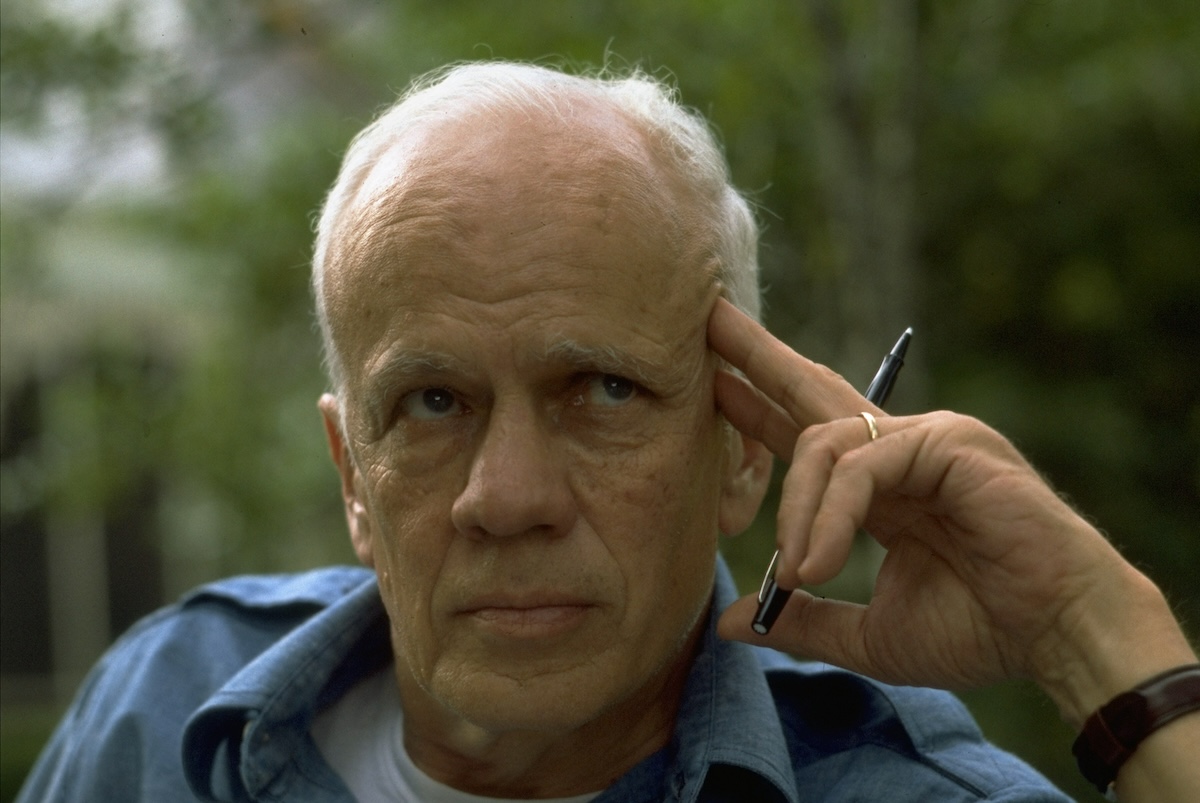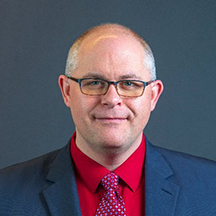Forty years ago, the philosopher and novelist Walker Percy published what is easily the strangest book of his writing career. Lost in the Cosmos distills the major themes of both his novels and his philosophical essays into a little over 250 pages of multiple-choice questions (and peculiar answers), hypotheticals, and brief stories. Billing it the “last self-help book,” Percy assailed virtually everything ordinary Americans take for granted about themselves—and issued stark challenges to the practitioners of the human sciences that very few scholars have bothered to take up.
The early reviewers for major newspapers loathed the book, finding Percy’s approach to be a confusing “mishmash of satire and seriousness” and “neither good philosophy nor a good read nor yet a book likely to help any Self I Know of, including its author.” Like all Percy’s works, Lost in the Cosmos has remained continuously in print and, far more than most of his novels, retains a strong following. It is probably the book that resonates most clearly with our present discontents and may well be the only one of his works that will continue to be read widely in decades to come. The critics suggest that the menu of answers Percy offers to his multiple-choice questions somehow imposes his views or pronounces his judgment upon the readers. But this is unfair: Percy isn’t exempting himself from condemnation or his own parody. Part of the discomforting joy of the book is in seeing many of our own thoughts laid bare in all their strangeness.
One cannot accuse Percy of failing to alert the reader to the kind of intellectual assault that awaits them. He opens with a “preliminary short quiz” to determine whether one is, in fact, lost to oneself. This mix of open-ended and multiple-choice questions offers some challenges to our everyday experience. For example, “Why is it that one can look at a lion or a plant or an owl or at someone’s finger as long as one pleases, but looking into the eyes of another person is, if prolonged past a second, a perilous affair?” Readers are encouraged to reflect on aspects of human experience that are familiar but also strange. This then prompts them to wonder whether they understand the human condition at all.
This isn’t to say that aspects of the book aren’t dated. Readers will be excused for looking up Phil Donahue, Leo Buscaglia, and a handful of other references that would have been immediately familiar to Percy’s readers in the 1980s. But these callouts appear in the course of questions and scenarios we still face today—and the American craze for self-help guides, experts, and shortcuts “to a better you” certainly hasn’t abated. It isn’t the cultural references that pose problems so much as Percy’s own peculiar method of leading the reader to grapple with the depth of the human predicament.
In the book’s opening pages, Percy asks readers to evaluate which view of the “consciousness of self,” if any, they think explains one’s sense of the human condition. These run a gamut from pagan to theistic to modern-philosophic: Are you a cosmological self; a Brahmin-Buddhist, Jew, or Christian: a “role-taker”; a scientist or an artist; a fully autonomous being; or perhaps a totalitarian? Some of the options might have been plausible in the quite recent past, even. Consider the “standard American-Jeffersonian high-school-commencement Republican-and-Democratic-platform self”:
The self is an individual entity created by God and endowed with certain inalienable rights and the freedom to pursue happiness and fulfill its potential. It achieves itself through work, participation in society, family, the marketplace, the political process, cultural activities, sports, the sciences, and the arts. It follows that in a free and affluent society the self should succeed more often than not in fulfilling itself. Happiness can be pursued and to a degree caught.
This and all his descriptions nudge the reader to address a challenge: Is this really good enough to explain you, much less help you live well?
Percy’s questions help us see the real deficiency of virtually all self-help literature: these works presuppose that by simply learning the “habits of effective people” or practicing some slate of life management strategies, we will emerge as better versions of ourselves. What most people learn from embracing these fads is that even if we succeed in living out the advice, the self we help is still human and remains stuck in an inescapable predicament—a crisis driven by the inadequacy of our self-understanding.
Percy pushes the boundaries of what most people are usually willing to contemplate. Lost in the Cosmos relentlessly forces us to probe the limits of our conventional explanations for “extreme” or “dangerous” behavior. He suggests that even most religious believers lack an adequate grasp of how to grapple with the challenges of our times and are just as prone to seek escape from their everyday lives in what Percy calls immanence and transcendence.
We escape ourselves on the path of immanence through a variety of means. Among these are shopping, television, drugs, sex, and violence. But why? One possible answer:
The Self since the time of Descartes has been stranded, split off from everything else in the Cosmos, a mind which professes to understand bodies and galaxies but is by the very act of understanding marooned in the Cosmos, with which it has no connection. It therefore needs to exercise every option in order to reassure itself that it is not a ghost but is rather a self among other selves. One such option is a sexual encounter. Another is war. The pleasure of a sexual encounter derives not only from physical gratification but also from the demonstration to oneself that, despite one’s own ghostliness, one is, for the moment at least, a sexual being.
Just as stark are Percy’s explorations of how we seek to transcend our ordinary condition. Artists express what we hope and feel; scientists can grasp the causal relations between objects in the natural world. For both, he suggests, there is a kind of escape: “The pleasure of such transcendence derives not from the recovery of the self but from the loss of self.” We can lose ourselves in a variety of ways.
Human beings don’t follow a straight course. We oscillate between one extreme and the next. A mathematician might spend eight hours barely noticing the needs of the body then escape from work into a night of drug-fueled carousing, never considering for a moment anything about the peculiarity of being a complete person, both body and soul. Percy fears these kinds of individuals can become unmoored from everyone and everything:
None is as murderous as the autonomous self who, believing in nothing, can fall prey to ideology and kill millions of people—unwanted people, old people, sick people, useless people, unborn people, enemies of the state—and do so reasonably, without passion, even decently, certainly with the least obnoxiousness.
Lost in the Cosmos does a great service to its readers by helping outline the mental state that so often accompanies modern boredom or everydayness, that leads us into yearning for disasters or bad news or fleeing from our ordinary existence through consumerism, travel, sex, or other enthusiasms. Percy’s achievement is to suggest what we really need: a better sense of who and what we really are—and he approaches this in a manner aimed at persuading Americans who lean into either spiritualism or science to see where they need a better sense of the self.
It would take another essay to fully explore how Percy does this. Suffice it here to say that he shows how the natural sciences have colonized the ways most of us (even people of faith) view human life. We’re drenched in a culture driven by philosophical materialism, which devalues everything special about the human person. We fail to see that language is a clue to the irreducible gift of our consciousness and the symbolic worlds it creates. Our inability to communicate perfectly with others—and with God—is essentially a byproduct of the fall. Now we live in a world where “the self is literally unspeakable to itself,” with basically no commonly shared language that can help navigate our journey through this life.
Percy’s philosophy and storytelling both aim at restoring our ability to see ourselves rightly and to make the ineffable curiousness of our consciousness visible once more. He ends this peculiar book with a pair of interconnected science fiction stories—both brief choose-your-own adventures with tragicomic twists. In these tales, he confronts readers with the possibility that the help we really need has already arrived. Percy gives those who believe new ways of showing others the way and developing eyes to see through our deranged times to hope.

